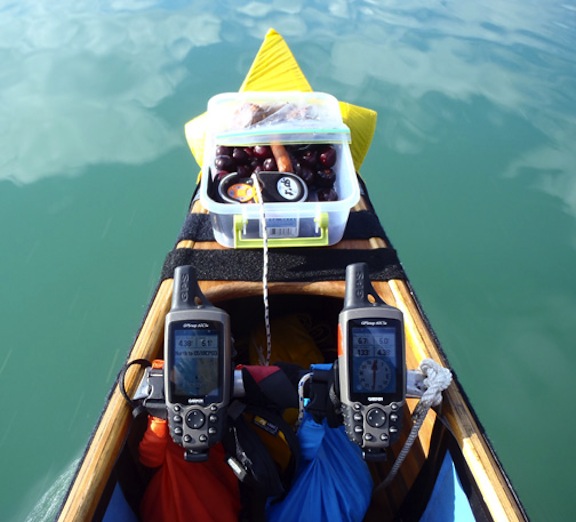* Phone fits in pocket. Battery stays warm. GPS does not fit in pocket. Battery gets cold. GPS shuts off. Advantage - Phone
* GPS, 1.6"x2.2" 160 x 240 pixels. iPhone XR 6.1" (Diag) 1792x828 pixels. Advantage - Phone
* GPS is a GPS. Phone is a GPS, Camera, Communication device, weather station, etc. Advantage - Phone
* GPS floats. Phone does not. Advantage - GPS
* Touch... when wet, the phone definitely is more difficult to operate. However, the GPS is always difficult to operate, using some complex series of buttons as arrows. Gonna give it to the phone on average.
* Both are waterproof enough for hiking use and maybe dropping in a stream - Tie
* If carrying paper map, compass, knowledge to use them, then GPS + Phone + Map is triple redundancy, so which one is least useful??? GPS.
* GPS - maps you loaded a long time ago (using the real computer). Phone - Many layers of maps, some updated in real time, with real tracks showing detours, closures, etc. No brainer - Phone.
* GPS - 1Gb card, 20 tracks, 500 points max each. Phone... 128Gb, unlimited tracks, unlimited points... I don't know, but I'll give this one to the phone.
* I've essentially given up on non-usb-rechargeable batteries. I just won't buy any device that is not usb-rechargeable. GPS uses batteries. Phone is usb-rechargeable AND it can charge other devices... phone wins again.
* Phone can stream live video to my wheelchair bound aunt. GPS can’t.
* Find my phone - wife / kids always know where I am (or was last in range of signal) - GPS... nope
* Newbie/lost/confused hiker... can give them any web site with location and they have map. Or I can give them a screen shot off my phone, where I can also draw on the screen shot to aid them. GPS... nope
* Phone uploads tracks to GAIA and/or Strava and/or ... automatically. GPS... maybe (needs the phone! or a cable and a laptop.)
You do you. I'll do me. HYOH.
Tim
p.s. I have two Garmin GPSes sitting in a box if you want them


